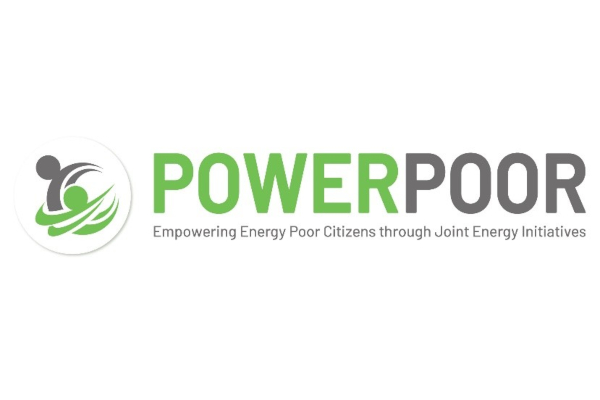
The main objective of the POWERPOOR project was to develop support programmes to empower energy poor citizens and to encourage the use of joint energy initiatives leveraging innovative financing schemes (e.g., establishing energy communities/cooperatives, using crowdfunding). POWERPOOR facilitated experience and knowledge sharing, the implementation of behavioural changes and small-scale no regret energy efficiency interventions as well as encourage the uptake of renewable energy sources through energy communities and cooperatives, increasing the active participation of citizens.
Pilot energy-poor support programmes were designed, developed, and implemented in eight countries across Europe led by a network of trained and certified Energy Supporters and Mentors. The Energy Supporters and Mentors supported energy-poor households to implement behavioural changes and low-cost, no regret, small-scale energy efficiency interventions, as well as encourage them to participate in joint energy initiatives or leverage innovative financing schemes. Energy-poor citizens were engaged through various planned activities, e.g., Info Days. At the same time, Local Energy Poverty Alleviation Offices (EPAO) were established in engaged municipalities staffed by POWERPOOR trained and certified Energy Mentors. The offices served as a One-Stop-Shop of information for alleviating energy poverty using the POWERPOOR approach.
An ICT-driven toolkit i.e., the Energy Poverty Mitigation Toolkit was also developed to complement the support programmes. National Stakeholder Liaison Groups were established in the national pilot countries to facilitate the engagement and be a focal point of the POWERPOOR activities and results. The bottom-up POWERPOOR approach can be part of Sustainable Energy and Climate Action Plans (SECAP), or any other action plan developed by municipalities to mitigate energy poverty at a local level.
Based on the experience gained and the lessons learnt from implementing POWERPOOR, EU policy recommendations and eight National Roadmaps have been developed, so that policy makers at all governance levels can be informed on the results of the project.
Some concrete key performance indicators included:
- 1174 trained and certified energy supporters and mentors
- 23 established and operating energy poverty alleviation offices
- 3100 unique visits in the Energy Poverty Mitigation Toolkit
- 66 online and on-site training sessions
- 90 members in the national stakeholder liaison groups
- 33 info days with 1,891 attendees
- 21000 energy poor households supported by the energy supporters and mentors
- 8 national policy roadmaps and EU policy recommendations
- 57 number of policies in SECAPs or other local action plans.
Follow the project updates on Facebook, LinkedIn, X (former Twitter) and YouTube. This page was last updated on 30 October 2023. For the most updated information about the project, please visit the Cordis website and the website of the project.
- Project duration
- 1 Sep 2020 - 31 Aug 2023
- Project locations
- Sofia, Plovdiv, BulgariaZagreb, Križevci, CroatiaTallinn, EstoniaMessini, Souli, Almyros, Tripoli, Aspropyrgos, WeEnCoop Thessaloniki, Athens, GreeceJózsefváros, Terézváros, HungaryJelgava, LatviaErmesinde, Lisbon, Mértola, PortugalTolosaldea region, REC Hernani, Tierra Estella, Oarsoaldea region, Bergara, Spain
- Overall budget
- €1 999 812
- Project website
- POWERPOOR
Stakeholders
Coordinators
[Lead Partner] NATIONAL TECHNICAL UNIVERSITY OF ATHENS (NTUA)
- Address
- Greece
Housing Europe
- Address
- Belgium
ICLEI
- Address
- Germany
INTRA
- Address
- Luxembourg
ENERGIAKLUB
- Address
- Hungary
EKYL
- Address
- Estonia
ZREA
- Address
- Latvia
INZEB
- Address
- Greece
Sofia Energy Agency
- Address
- Bulgaria
COOPERNICO
- Address
- Portugal
GOIENER
- Address
- Spain
ECN
- Address
- Belgium
